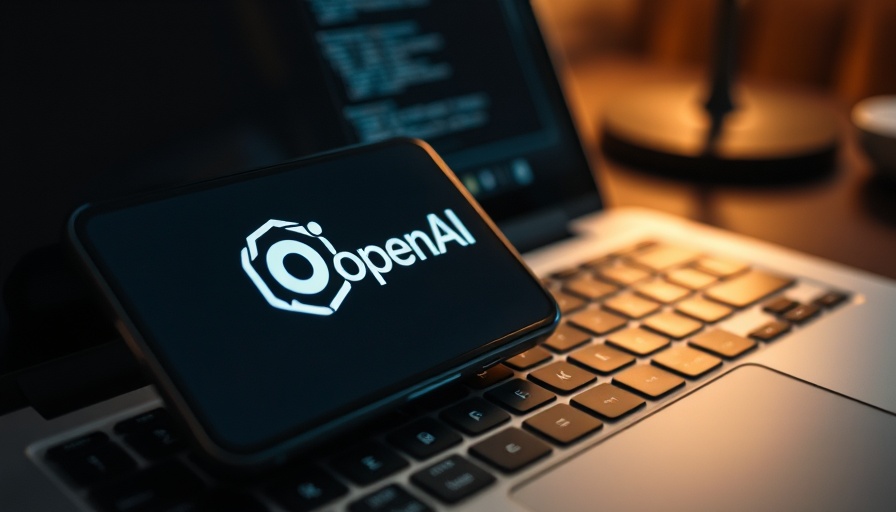
Elon Musk's Bold Offer: What It Means for OpenAI
In a dramatic twist reminiscent of a roller-coaster ride, Elon Musk made headlines when he attempted to acquire OpenAI with a staggering bid of $97.4 billion.
However, the OpenAI board, citing its mission as a nonprofit organization, rejected the offer, emphasizing that the company is 'not for sale.'
This event has sparked a flurry of discussions in the tech community about the implications of such a bid and what it signals for the future of artificial intelligence.
The Context of the Bid
Musk's proposal to buy OpenAI isn't just about money; it reflects a deeper concern.
After co-founding OpenAI, Musk left the organization in 2019, shortly after which it began to develop a for-profit arm.
This restructuring to attract more investment capital has drawn Musk's ire, leading him to argue that the company's primary focus should be on public benefit rather than profits.
The contradiction is stark: while OpenAI seeks to raise funds for its ambitious AI projects, Musk believes the original mission of providing safe and beneficial AI for humanity is at risk.
OpenAI’s Strong Stance
OpenAI's board, led by Chairman Bret Taylor, responded to the acquisition attempt with unwavering resolve, stating that Musk's offer was insincere and merely a disruption attempt.
Taylor articulated that maneuvering open-source technologies and safety-focused AI entities is fundamental to OpenAI's identity.
This response reflects the company's commitment to its nonprofit roots, even amidst mounting pressure to transition to a for-profit model.
The Underlying Tensions: Musk vs. Altman
The back-and-forth between Musk and OpenAI CEO Sam Altman highlights a long-standing rivalry that has intensified over the years.
Tensions flared again when Altman humorously declined Musk’s offer by joking about buying Twitter instead, a reminder of Musk's controversial social media presence and his previous ownership aspirations.
Musk's lawyer, Marc Toberoff, suggested that the rejection signals an internal conflict about how OpenAI manages its capital-raising strategies versus its mission guidelines.
Musk and his investors remain convinced that their bid could pivot OpenAI back toward a vision of altruism—this contradicts Altman's efforts towards innovation and securing competitive advantages in the AI landscape.
The Broader Impact of the Rejection
The refusal of Musk’s enticing offer indicates that OpenAI is steadfast in its objectives, but the underlying narrative raises pivotal questions for investors, innovators, and users.
By rejecting the proposal, OpenAI reinforced its strategy to grow independently while safeguarding its mission.
Yet, this could also lead to hindering potential collaborations with powerful figures like Musk, known for his revolutionary ventures in tech.
The Future of AI: A Shared Responsibility
As the AI landscape rapidly evolves, the tension between profit motives and ethical responsibilities becomes increasingly pronounced.
OpenAI’s commitment to ensuring that Artificial General Intelligence (AGI) is beneficial for all humanity resonates with many stakeholders, especially in an era where technological advancements must be balanced with noise surrounding ethical implications.
The fate of AI innovation might very well depend on how organizations like OpenAI navigate these complex relationships with influential figures like Musk who envision a corporate landscape churning profit rather than pure altruism.
A Reflection on Musk's Motivations
To understand Musk's motivations fully, it’s crucial to recognize the historical context in which he co-founded OpenAI.
The dynamics of his departure and subsequent lawsuits against OpenAI illustrate a mix of frustration and concern for how AI technologies are developing.
Musk's desire to see OpenAI remain true to its utopian beginnings anchors much of his public persona and interactions with the media.
Conclusion: What's Next for OpenAI?
While OpenAI's board has rejected Musk's offer, the AI community continues to watch closely.
As both a player and a spectator, Musk’s next moves could further shape the industry's future trajectory.
OpenAI’s leadership will need to stay focused on its mission while addressing the realities of fundraising and competition.
Ultimately, the landscape of AI innovation will require collaborative efforts, transparent communications, and a common understanding to thrive without compromising ethical standards.
Only time will tell how this saga unfolds and what ripple effects it might engender across the tech industry.
 Add Row
Add Row  Add
Add 




Write A Comment